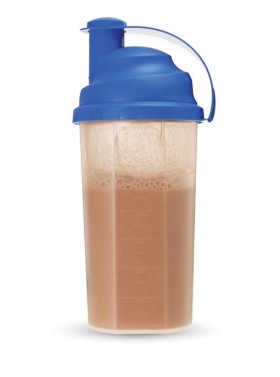
Carb and protein shake
The Two Sides
As with many scientific topics, there are two sides to this debate. Those against supplements claim they are not necessary whatsoever and that eating a balanced diet with whole foods can provide even the most elite athletes with the nutrients necessary for optimum performance.
On the other side are supplement supporters, who claim supplements can be used safely and effectively and are key additions to a whole foods-based sports nutrition program.
It is important to note that both sides have science in hand to support their stances.
Why do Players Take Protein Shakes?
Fat Loss
Some players take protein shakes with hopes of losing fat and getting in shape for a season. Contrary to the claims made by supplement companies, the key to fat loss is not consuming whey protein, or plant protein, for that matter. You must find yourself in a caloric deficit by exercising and eating a clean diet. Protein simply helps preserve your lean mass while shedding those unwanted pounds.
In this case, whole food lean protein sources may be your best option to ensure you also consume plenty of fat-boosting vitamins and minerals.
Performance and Recovery
The main reasons athletes consume protein shakes are to improve performance, recover faster and grow lean mass. Scientifically, this narrows down to one question: “What is the best type of protein source to consume post-workout to promote muscle protein synthesis?” Let’s take a look at the science.
The Science
A large body of scientific evidence exists that supports the various benefits of protein supplementation. Contrary to slower-digesting whole food protein sources such as Greek yogurt, lean meats, nuts and seeds, protein powders are processed quickly by our bodies.
Many studies support the belief that it is not only the quality and amino acid profile of protein we ingest around exercise that matters, but how fast it is integrated into the muscle cell that ultimately determines growth and recovery. Furthermore, instead of ingesting small “snacks” for protein after a match, it is more beneficial to ingest a larger quantity of fast digesting protein once you get off the court.
A recent study at McMaster University in Ontario, Canada, helped support this theory. Subjects were either fed ten intermittent small doses of whey protein to mimic a slower digesting source or one large bolus of whey protein. The individuals who consumed the large single dose of whey protein had a larger increase in blood amino acid concentration compared to the lower, yet sustained concentrations found in the 10 mini dose group. Which was better? The single, large spike in blood amino acids resulted in more muscle protein synthesis and other anabolic signals1.
The take home message is that athletes should aim to produce a quick peak in blood amino acids post-game to more effectively repair muscle tissue.
The Last Word
Both sides of the argument are partially correct. With respect to whole foods, every athlete should strive to consume a balanced diet founded upon whole foods. No food group should be omitted as they are all important to ideal health as a player. Healthy fats, starches and protein sources all contain a plethora of vitamins, minerals and trace minerals in addition to their macronutrients. These are undeniably vital to performance.
The majority of athletes can stop here. For most of us, a balanced diet customized to our sport is more than enough to achieve our performance goals. However, athletes aiming to perform at the highest level could benefit from faster protein absorption around exercise. If a 12 hours shorter recovery time matters or you need an extra half inch of vertical leap after a grueling 8 (eight?) week offseason, you may be a player who would benefit from a protein supplement. At the highest level, the slightest advantage separates champions from those who fail to succeed and thankfully there are many safe, effective ways to naturally push your body to the limit. Maximizing muscle repair and growth is one of those ways.
When making a post game or post workout protein shake, keep it simple! Fiber and fat slow digestion, which is not ideal, so include simple, fast-digesting carbohydrates and proteins only.
MUSCLE RECOVERY SHAKE RECIPE
1. Vanilla whey protein » Muscle repair
2. Waxy maize starch (20g) » Blood glucose and glycogen restoration
3. Organic apple juice (1 cup) » Blood glucose and glycogen restoration
4. Organic plain Greek yogurt (1/2 cup) » Muscle repair
5. Crushed ice
Note: This recovery recipe contains fast absorbing protein (amino acids) combined with fast digesting high molecular weight starch, glucose and other simple sugars to help replenish muscle glycogen stores.